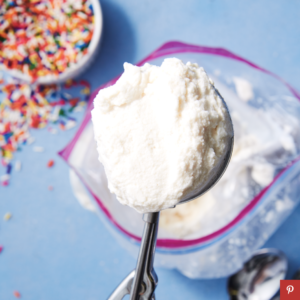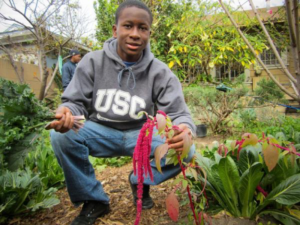Home Insteading With Cooperative Extension (Week 11)
go.ncsu.edu/readext?696929
en Español / em Português
El inglés es el idioma de control de esta página. En la medida en que haya algún conflicto entre la traducción al inglés y la traducción, el inglés prevalece.
Al hacer clic en el enlace de traducción se activa un servicio de traducción gratuito para convertir la página al español. Al igual que con cualquier traducción por Internet, la conversión no es sensible al contexto y puede que no traduzca el texto en su significado original. NC State Extension no garantiza la exactitud del texto traducido. Por favor, tenga en cuenta que algunas aplicaciones y/o servicios pueden no funcionar como se espera cuando se traducen.
Português
Inglês é o idioma de controle desta página. Na medida que haja algum conflito entre o texto original em Inglês e a tradução, o Inglês prevalece.
Ao clicar no link de tradução, um serviço gratuito de tradução será ativado para converter a página para o Português. Como em qualquer tradução pela internet, a conversão não é sensivel ao contexto e pode não ocorrer a tradução para o significado orginal. O serviço de Extensão da Carolina do Norte (NC State Extension) não garante a exatidão do texto traduzido. Por favor, observe que algumas funções ou serviços podem não funcionar como esperado após a tradução.
English
English is the controlling language of this page. To the extent there is any conflict between the English text and the translation, English controls.
Clicking on the translation link activates a free translation service to convert the page to Spanish. As with any Internet translation, the conversion is not context-sensitive and may not translate the text to its original meaning. NC State Extension does not guarantee the accuracy of the translated text. Please note that some applications and/or services may not function as expected when translated.
Collapse ▲4-H at Home
Camaryn Byrum, 4-H Agent
Ice Cream in a Bag
With the first official day of summer quickly approaching, refreshing summer treats are a must! Here is a quick and easy way to make homemade ice cream without needing an ice cream maker. The recipe can be found on the Food website.
Ingredients (makes 1 serving)
- ½ cup Half and Half
- 1 tablespoon sugar
- ¼ teaspoon vanilla
- 1 sandwich size Ziploc bag
- 1 gallon size Ziploc bag
- 3 cups crushed ice
- 1/3 cup rock salt
- Toppings of choice
Directions
- Combine Half and Half, sugar and vanilla in smaller size Ziploc bag (sandwich size). Make sure to seal the bag tightly!
- Place ice and rock salt in larger size Ziploc bag (gallon size).
- Place the smaller Ziploc bag inside the larger Ziploc bag. Seal the larger bag tightly!
- Squeeze/ shake the bag until ice cream is thickened. This should take about 10-15 minutes.
- Remove small bag once ice cream is formed.
- Add your favorite toppings to the small Ziploc bag.
- Enjoy!
Family and Consumer Sciences at Home
Mary Morris, Family and Consumer Sciences Agent
Count on Me NC
N.C. Cooperative Extension of Chowan County and surrounding counties are promoting this new program from NC State Extension and partners to help during the coronavirus pandemic. This program is a series of online training for restaurants on how to navigate through accepting employees and patrons back into their facilities.
Natalie Seymour, NC State University Food Safety Extension Associate says NC State Extension, in partnership with NC Department of Health and Human Services, NC Restaurant and Lodging Association and Visit NC is excited to be a part of Count On Me NC.
The Count On Me NC program is focused on providing the necessary knowledge and information needed to manage COVID-19 within businesses as restrictions are relaxed. As part of the voluntary program there are free, online courses that provide a consistent approach based on state and national guidelines.
The program is also partnered with a marketing campaign and customer expectations, with the intent to create shared responsibility for preventing the spread of COVID-19. If you are a consumer, check out countonmenc.org and steps you can take to help keep others safe while dining out, shopping, and visiting hospitality and tourism attractions. If you are looking for businesses in your area who have been trained with the program, check out Count On Me NC. If you own or work at a business and want to participate, check out the business training on Count On Me NC.
All participants will receive a personalized certificate they can display in their business and can access a link after training to register through NCRLA to receive a social media toolkit. Those who complete the Restaurant Manager or General Best Practices training can also have their businesses listed on the map and receive a window decal from NCRLA.
Questions about the program can be directed to email CountOnMeNC@ncsu.edu.
You can also call Mary Morris at 252-482-6585 or email mary_morris@ncsu.edu for more information. Start looking for these signs at our local restaurants in the weeks to come, that will mean that they have been through the training to manage COVID-19 within their business safely.
Horticulture at Home
Katy Shook, Area Horticulture Agent
Most people are spending more time at home, and that might mean more time outdoors. Gardening is a great way to stay active and healthy! Ensure a safe summer in the garden with these tips –
- Never eat any part of an unidentified plant. Plant toxicity can vary according to plant parts and contact method. The NC State Extension Gardener Plant Toolbox is an excellent resource for learning more about common garden plants and their potential toxicity. Learn more.
- Reduce mosquito populations by regularly dumping water that has collected in garden accessories like flower pots and bird baths.
- When working in the garden, use safety equipment including garden gloves. If using heavy equipment, use additional protection such as eye protection, earplugs and/or long pants.
- Make sure the tool you’re using matches the job requirements.
- Wash produce collected from the garden as you would produce from the store. Contaminants from nearby structures and pets can cause food safety problems for home gardeners.
- Keep gardening equipment maintained. Cleaning, sharpening, and properly storing lawn mowers and other garden equipment will promote plant and operator health.
- Protect yourself from outdoor elements with products like sunscreen and bug repellent.
- Remember to stay hydrated.
- Overgrown, weedy areas can attract pests like ticks, and unwelcome snakes. Keep areas regularly maintained to discourage pests.
- Fire ants are common in most backyards and gardens. The painful stings can result in more serious health problems for some gardeners. Bait-type insecticides are available and effective for controlling mounds; follow all label directions.
- Work in the coolest times of the day to prevent heat related health issues. Pace yourself and take regular breaks.
- Don’t let the garden stress you out; focus on the mental health benefits of spending time outdoors.






